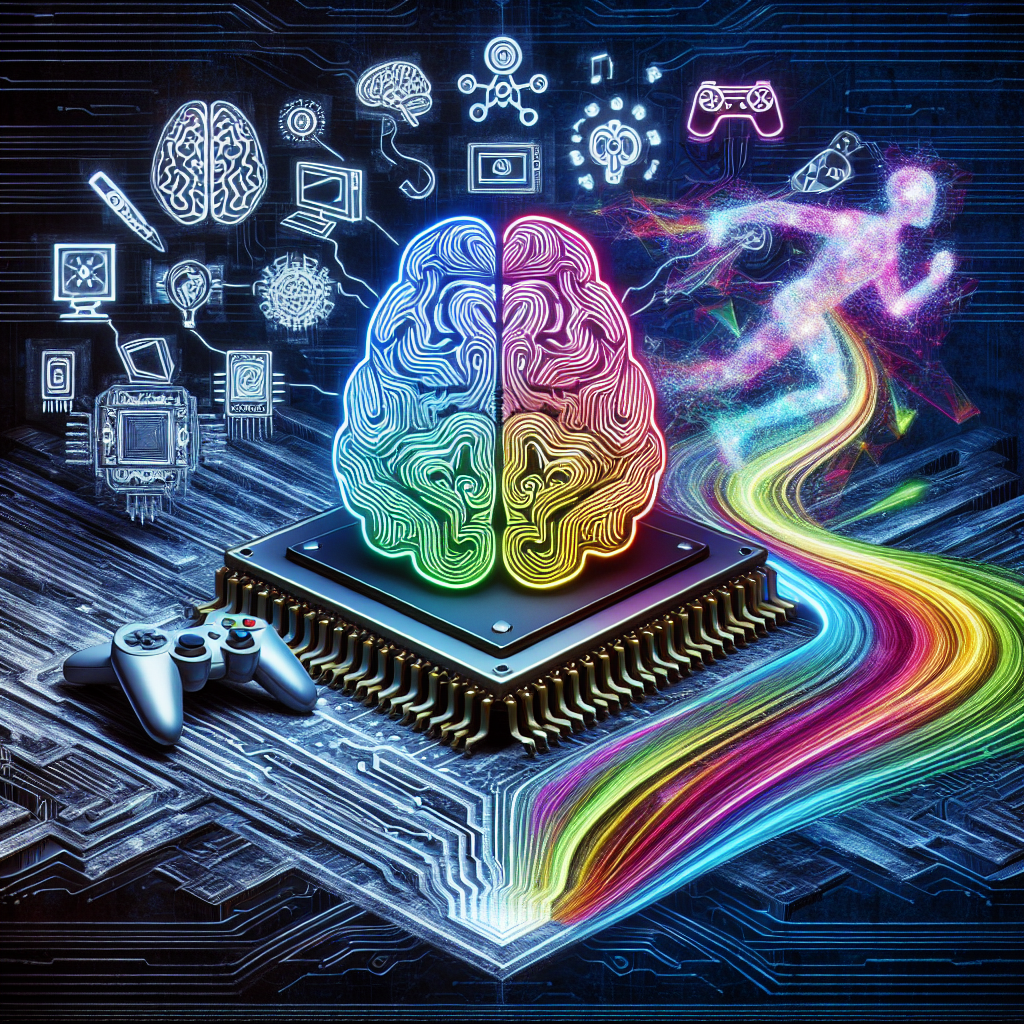In recent years, the gaming industry has seen a significant shift towards personalization and customization in games. This shift has been driven by advancements in artificial intelligence (AI) technology, which has enabled game developers to create more immersive and engaging experiences for players. AI-powered game personalization algorithms have become increasingly important in shaping the player experience, from recommending content to tailoring difficulty levels to individual player skills. In this article, we will explore the role of AI in game personalization algorithms and how it is shaping the future of gaming.
AI in Game Personalization Algorithms
AI has revolutionized the gaming industry by allowing developers to create more personalized experiences for players. Game personalization algorithms use AI to analyze player data and behavior in order to tailor the game experience to individual preferences and playing styles. These algorithms can take into account a wide range of factors, such as player skill level, playstyle, preferences, and past behavior, to create a customized experience that is unique to each player.
One of the key ways in which AI is used in game personalization algorithms is through content recommendation. AI-powered algorithms can analyze a player’s behavior and preferences to recommend content that is likely to be of interest to them. For example, a player who enjoys first-person shooter games may be recommended similar games in the genre, or a player who frequently plays multiplayer games may be recommended new multiplayer modes or maps to try. These recommendations help players discover new content that they may not have otherwise found, leading to a more engaging and personalized gaming experience.
AI is also used in game personalization algorithms to tailor difficulty levels to individual player skills. By analyzing a player’s performance and behavior in the game, AI can adjust the difficulty level in real-time to provide a more challenging or rewarding experience. For example, if a player is consistently struggling with a particular level, AI may adjust the difficulty level to make it easier, or provide hints and tips to help the player progress. On the other hand, if a player is finding the game too easy, AI may increase the difficulty level to provide a more challenging experience.
Another way in which AI is used in game personalization algorithms is through adaptive gameplay. AI-powered algorithms can analyze a player’s behavior in real-time to make decisions about the game environment, such as spawning enemies, adjusting enemy behavior, or changing the level layout. This allows for a more dynamic and responsive gameplay experience, where the game adapts to the player’s actions and decisions in real-time.
Overall, AI-powered game personalization algorithms are transforming the gaming industry by providing players with more personalized and engaging experiences. These algorithms use AI to analyze player data and behavior, recommend content, tailor difficulty levels, and adapt gameplay in real-time to create a customized experience that is unique to each player.
FAQs
Q: How does AI analyze player data in game personalization algorithms?
A: AI analyzes player data in game personalization algorithms by collecting and processing a wide range of data points, such as player behavior, preferences, skill level, and past gameplay. This data is then used to create a profile of the player, which is used to tailor the game experience to their individual preferences and playing style.
Q: How does AI recommend content in game personalization algorithms?
A: AI recommends content in game personalization algorithms by analyzing a player’s behavior and preferences to identify content that is likely to be of interest to them. This can include recommending similar games in the genre, new multiplayer modes or maps, or in-game items that the player may enjoy.
Q: How does AI tailor difficulty levels in game personalization algorithms?
A: AI tailors difficulty levels in game personalization algorithms by analyzing a player’s performance and behavior in the game to adjust the difficulty level in real-time. This can include making the game easier if a player is struggling, or increasing the difficulty level if a player is finding the game too easy.
Q: How does AI adapt gameplay in game personalization algorithms?
A: AI adapts gameplay in game personalization algorithms by analyzing a player’s behavior in real-time to make decisions about the game environment, such as spawning enemies, adjusting enemy behavior, or changing the level layout. This allows for a more dynamic and responsive gameplay experience.
In conclusion, AI-powered game personalization algorithms are revolutionizing the gaming industry by providing players with more personalized and engaging experiences. These algorithms use AI to analyze player data and behavior, recommend content, tailor difficulty levels, and adapt gameplay in real-time to create a customized experience that is unique to each player. As AI technology continues to advance, we can expect to see even more sophisticated and immersive personalized gaming experiences in the future.

